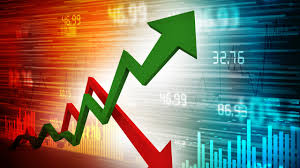By Chris Ndibe
A Professor of Capital Market, Uche Uwaleke, has attributed the uptrend in September inflation rate to increase in fuel pump price, electricity tariff and continued border closure.
Uwaleke spoke in Lagos while reacting to the inflation figure released by the National Bureau of Statistics (NBS).
The Consumer Price Index report released by the NBS said the nation’s headline inflation rose by 0.49 basis points in September to 13.71 per cent from 13.22 per cent recorded in August.
The current inflation rate is the highest since February 2018.
The report shows that on a month-on-month basis, the headline inflation increased by 1.48 per cent in September, 0.14 per cent rate higher than the rate recorded in August 2020 (1.34 per cent).
Uwaleke said that the uptrend in headline inflation was expected.
“It is the immediate outcome of the increase in the pump price of fuel, the Value Added Tax, electricity tariff as well as implementation of stamp duties and continued border closure.
“All these factors aggravated the legacy issues reflected in infrastructure deficit, especially power and transport as well as illiquidity in the foreign exchange market, and insecurity.
“It is also not a surprise that food inflation is exerting the most pressure, rising by as high as 16.6 per cent in September, owing to supply shortages from the lingering effects of COVID-19 and security challenges in some food-producing areas of the country,” he said.
Uwaleke, the President, Capital Market Academics of Nigeria, said that insecurity in Zamfara and some other states contributed to the inflationary pressure from reduced food output.
“It is no surprise therefore that Bauchi and Zamfara recorded the highest inflation rates while relatively safe areas such as Lagos and Abuja had the least numbers.
“The harvest season may not significantly rein in inflation except issues of insecurity and foreign exchange pressure are addressed,” he added.
On the way forward, Uwaleke said that the Central Bank of Nigeria (CBN) interventions in the agriculture sector should be monitored to ensure that funds were used for the purposes meant.
“There is equally the need to speed up the implementation of the mass agriculture programme in the government’s Economic Sustainability Plan,” Uwaleke added.
According to him, the solution is to produce more to increase supply because measures to reduce the demand will hurt economic recovery, considering the fact that economic growth is still in the negative territory.




